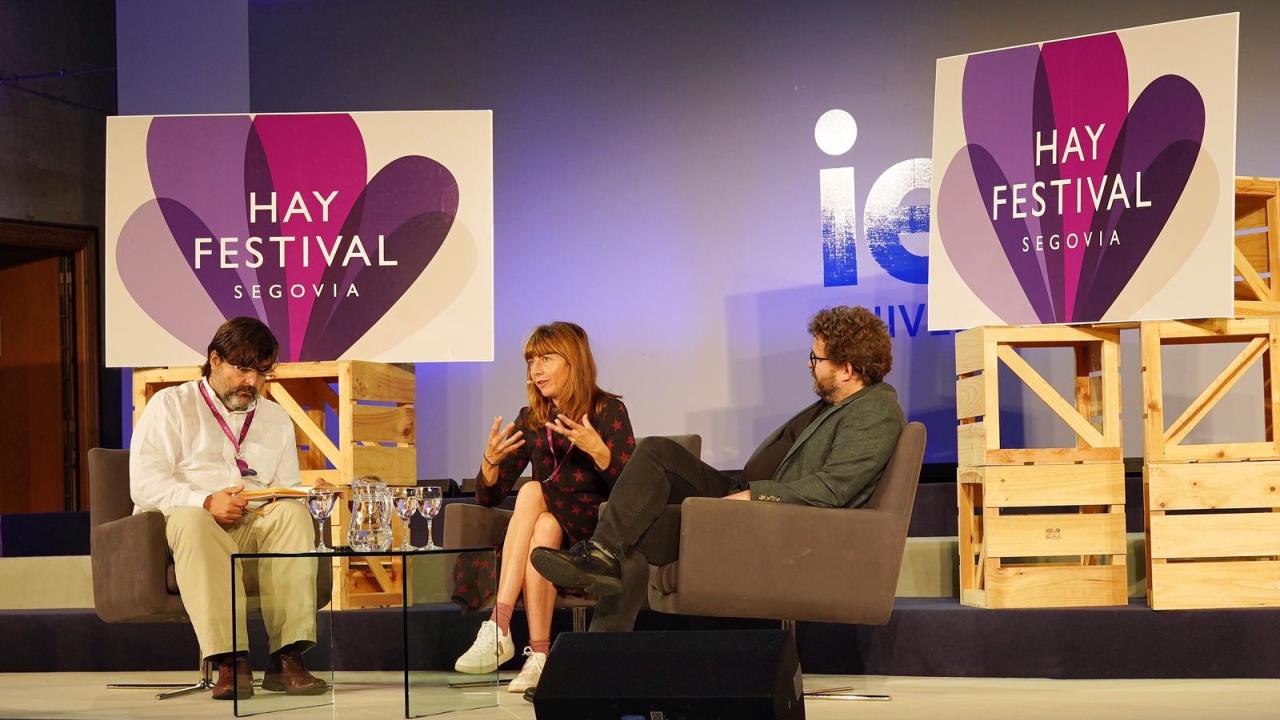
The revolution of knowledge, from the classical world to today, was the topic of discussion between British historian Violet Moller and German philosopher Wolfram Eilenberger at Hay Festival Segovia on Saturday.
"It’s scary how much information today is digital," Moller began. "If someone pulled the plug we could lose everything. The old fashioned book suddenly seems a safe depository for knowledge."
And that digital abundance of knowledge would be a challenge for historians of the future, argued Moller, whose book The Map of Knowledge: A Thousand-Year History of How Classical Ideas Were Lost and Found focusses on knowledge gatherers of the past. "Historians of today will need different skills from us. They will have to wade through billions of emails and digital data."
But Eilenberger countered with a more positive framing. "Every generation thinks they are the first to experience their problems," he said. "But if you look back at history you realise how these problems come back again and again. The study of that fact can be a vaccination from our fears."
"We should regain the sense that an abundance of sources is a bad thing," he argued. "You can have too much information...Reading has to be slow. Books need reading and re-reading. You have to digest them. Digestion is a good metaphor for it - it’s organic, it takes time."
So, will philosophy save us?
"Philosophy requires distance," Eilenberger said. "Once you get too close to power you lose the touch, the sense, the relevance of what you do... I don’t think philosophy necessarily makes good leaders. The current Prime Minister of Great Britain is a classicist after all."
Find our more about Violet Moller's The Map of Knowledge here and Wolfram Eilenberger's work here. Explore the rest of the Hay Festival Segovia programme here.